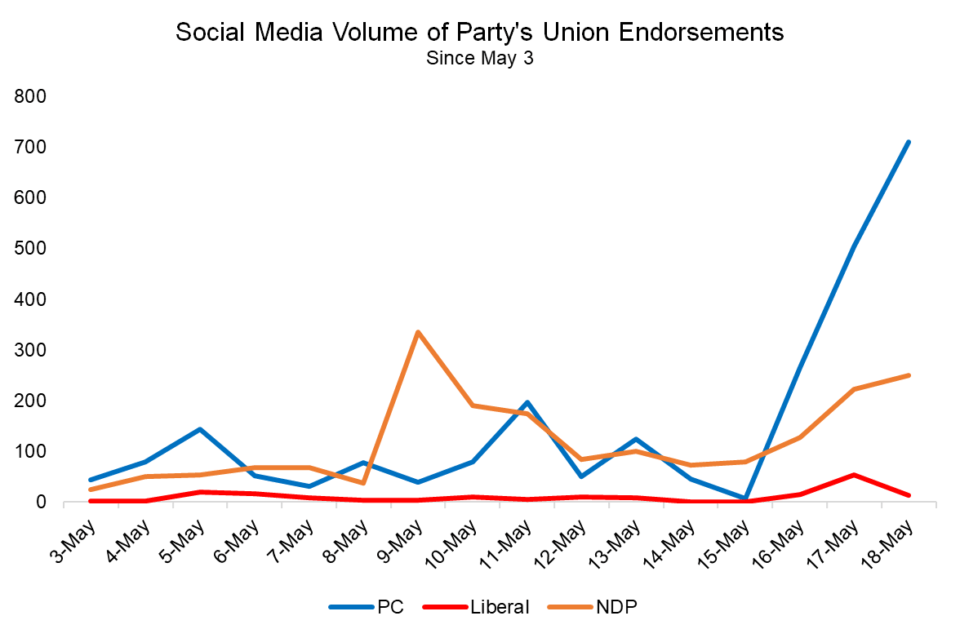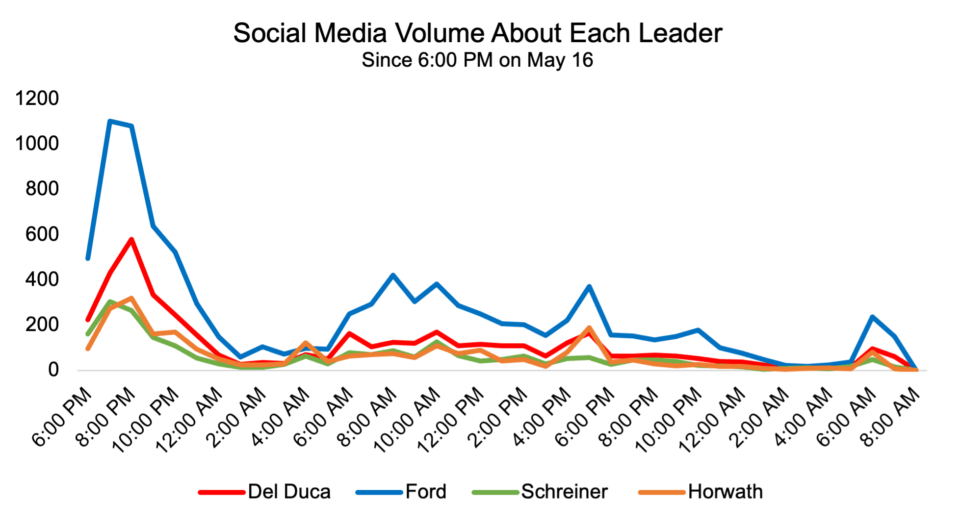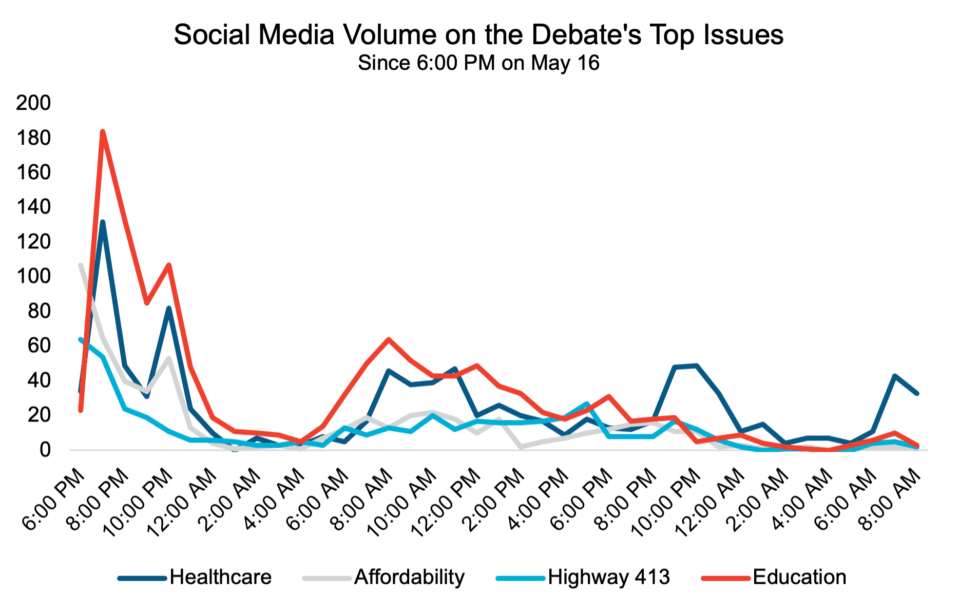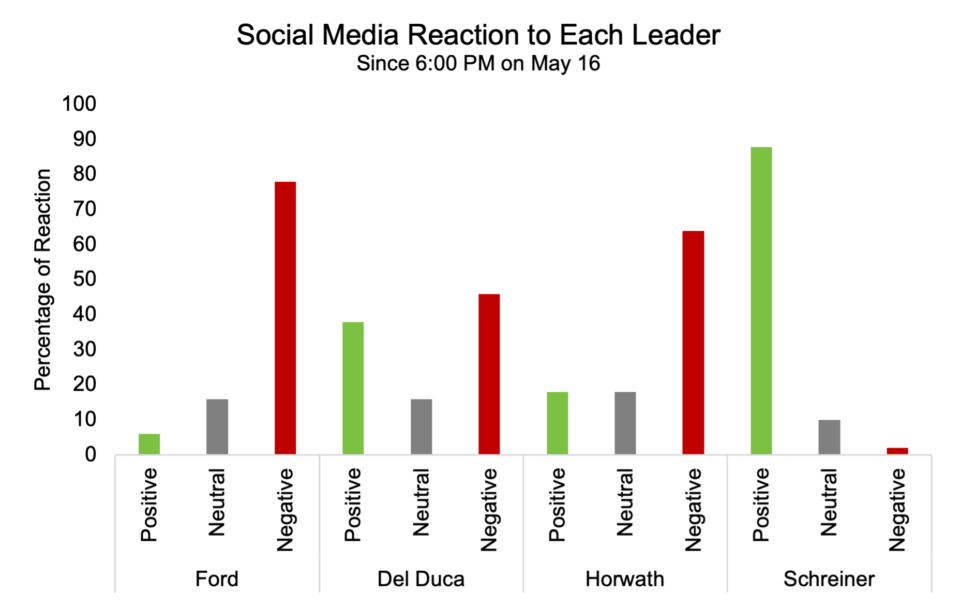On the eve of a provincial election, the NDP were counting their losses. Many of their union members, particularly male workers, were not just flocking to the Progressive Conservatives but doing so in droves after the progressives had alienated them. Policies that had been designed to save public sector jobs ultimately did not represent their interests.
It’s ancient history now, but this story of the 1995 election showdown between then-NDP premier Bob Rae and PC leader Mike Harris could just as easily be the story of the 2022 Ontario election.
On the evidence, Doug Ford and the Progressive Conservative Party of Ontario have every reason to feel good about their prospects at this stage in the campaign. And one of the key reasons is they have done what few other conservative parties in this country could — win over organized labour.
To be sure, Ford hasn’t won over the entirety of the labour movement, something that would be sure to raise eyebrows among his base. But political observers should take note: Ford has chipped away at the labour establishment and swooped in to win the support of construction unions slighted by the previous Liberal government. The result? A powerful new political coalition.
At the time of writing, six labour unions — the electrical workers, the boilermakers, the painters, the pipefitters, the sheet metal worker and, of course, the Laborers’ International Union of North America (LIUNA) — have all endorsed Ford.
Together, these unions hold a combined membership of over 50,000 workers. To put that in perspective, the Elementary Teachers’ Federation of Ontario, Ontario’s most prominent teachers’ union, represents about 78,000 members.
This is Ford’s second LIUNA endorsement. After he took office, he never took that 2018 endorsement for granted. Rather, he immediately set to work consolidating his relationship with the union. As a result, the relationship has blossomed ever since, and served as a stepping stone to deepening connections with other labour groups in the construction sector.
Ford also worked to rebalance the scales between workers and employers by improving working conditions for Ontario’s blue-collar and low-wage workers, from Uber drivers to dishwashers, especially in the wake of a global pandemic that exposed how critical these positions are — and how we undervalue them.
To do so, Ford abandoned a number of traditional “red meat” conservative policies. His government raised the general minimum wage, guaranteed digital platform workers the tips they earned and enshrined their protection from reprisal. Ford then went on to adopt progressive policies like the right to disconnect, and washroom rights for truck drivers and delivery workers.
The Ford government also invested in skills development, giving labour unions the funding to train and upskill workers. In 2022 alone, his government earmarked $1.2 billion in skills training, with portions of that funding going directly to unions like the International Brotherhood of Electrical Workers, the Ontario Pipe Trades Council, LIUNA and others.
In the new labour divide between remote work and essential work, Ford has made clear where he stands.
And that’s the key: the simplicity of Ford’s message of “yes.” Contrast that with NDP Leader Andrea Horwath’s messages around cancelling highway projects and reversing cuts to gas taxes, and guess whose message really resonates with union members wondering where their next paycheque is coming from?
The transformation has been as spectacular as it has been stark. Teachers, nurses and pipefitters no longer see eye to eye on the progressive agenda. Not all, to be sure, but elements of organized labour have now divorced themselves from the left and its traditional ideological home, embracing Ford’s PCs and their populist appeal to the working class in the process.
Ford’s efforts should serve as a model for other conservative politicians who often find they have to struggle to build a winning coalition. Ford has demonstrated that the untraditional pairing of conservative politics and labour unions has the power to fundamentally reshape the political landscape.




